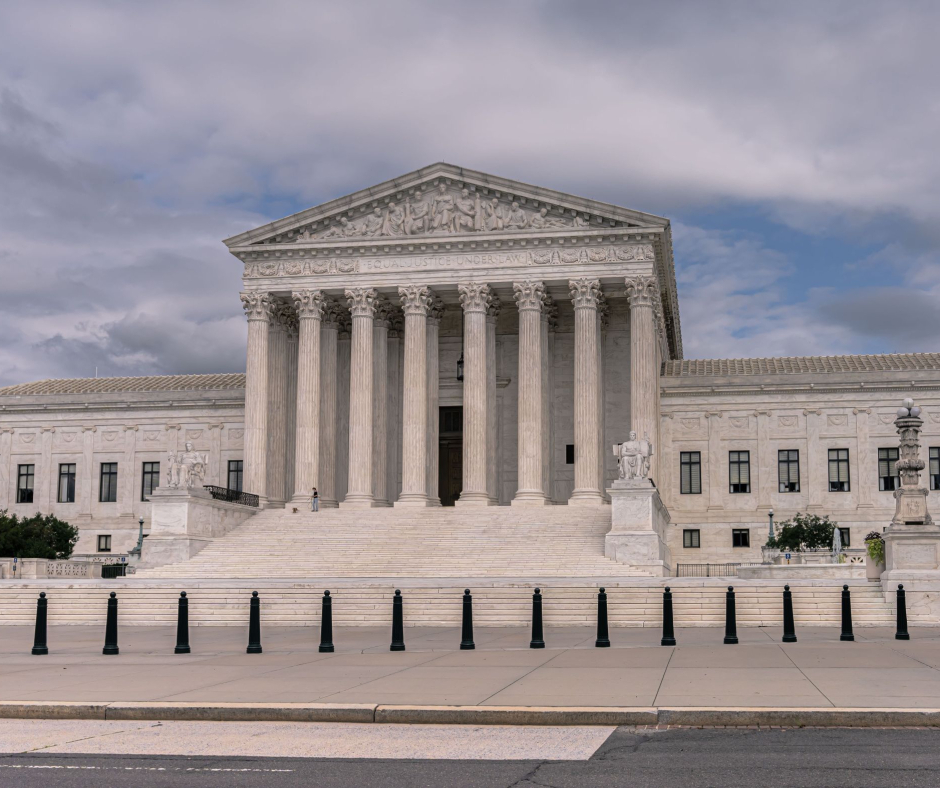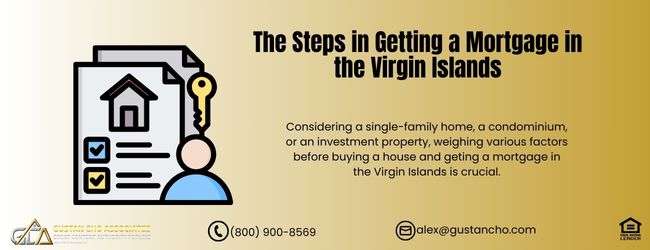HUD Chapter 13 Hardship Discharge Guidelines

This guide will cover the HUD Chapter 13 Hardship Discharge Guidelines. If you’re going through a Chapter 13 bankruptcy and have received a Chapter 13 bankruptcy hardship discharge, you may wonder how to qualify for an FHA loan. While it may seem like an ongoing struggle, options are available. In this blog post, we’ll go over some tips on how to seek out a lender and get a loan under the HUD Chapter 13 hardship discharge.
What is a HUD Chapter 13 Hardship Discharge?
A hardship discharge is a discharge of your debts granted by the bankruptcy court. It is available to debtors who cannot complete their Chapter 13 bankruptcy repayment plan due to circumstances beyond their control, such as illness, unemployment, or a decreased income. A hardship discharge allows debtors to release their remaining debts and obtain a fresh start. The HUD Chapter 13 Hardship Discharge is a tool used by those who have filed for bankruptcy but are experiencing unexpected financial difficulties. First, it is crucial to understand that getting an FHA loan with a HUD Chapter 13 Hardship Discharge can be challenging. Dale Elenteny, a senior mortgage loan originator with GCA FORUMS Mortgage Group and an associate contributing editor with GCA FORUMS NEWS, explains the hurdles people can find getting a Chapter 13 hardship discharge problematic as follows:
One of the reasons it is problematic is that the discharge is granted after the debtor has made all required payments under their bankruptcy plan. This means the debtor has faced significant financial difficulties and cannot pay all their debts on time.
However, there are still ways to obtain a loan with a Chapter 13 Hardship Discharge. One option is to work with a reputable lender specializing in lending to those with a bankruptcy record. These lenders understand the challenges of Bankruptcy and can work with the debtor to find a loan that suits their needs. Another option is to work with a credit union or community bank. These institutions may be more willing to work with someone who has filed for Bankruptcy and is seeking a loan. Credit unions are commonly known for their focus on helping struggling members. Speak With Our Loan Officer for HUD Chapter 13
HUD Chapter 13 Hardship Discharge: How to Recover Financially
In today’s world, it is not uncommon to struggle financially, especially in times of economic hardship. It can be overwhelming and stressful when you cannot pay the debt. However, filing for Chapter 13 bankruptcy can provide a solution and a chance for a fresh start. The hardship discharge is one of the most important aspects of Chapter 13 bankruptcy.
Eligibility on FHA Loans Under HUD Chapter 13 Hardship Discharge
To be eligible for a hardship discharge, you must have made payments under your Chapter 13 repayment plan for at least three years or the full length of your plan, whichever is longer. Furthermore, you must demonstrate that you cannot complete your repayment plan due to circumstances beyond your control. It is important to note that a hardship discharge is not automatic and must be granted by the bankruptcy court.
How HUD Chapter 13 Hardship Discharge Can Help You Recover Financially
A hardship discharge can help you recover financially in several ways. First, it can eliminate the remaining debts not paid off during your Chapter 13 repayment plan. This can give you a fresh start and allow you to focus on rebuilding your finances. Secondly, a hardship discharge can relieve the stress and burden of being unable to complete your repayment plan. This can provide peace of mind and allow you to move forward with a clear mind.
Consider a Secured Loan
If you’re having trouble getting approved for an unsecured loan, consider a secured loan instead. A secured loan is backed by collateral, such as your car or home. If you default on the loan, the lender can seize the collateral to recoup their losses.
While a secured loan may have a higher interest rate than an unsecured loan, it may be easier to get approved for one. Just be sure that you can afford the loan payments and that you’re not putting your collateral at risk.
When considering obtaining a loan with a Chapter 13 Hardship Discharge that may require the debtor to provide collateral, this can include property, such as a home or car, that the debtor owns. The lender may require the collateral to ensure that they can recover their loan if the debtor defaults. Collateral is not always needed but may be a guideline for a particular lender.
How to Seek Out a Lender
The first step in getting a loan with a Chapter 13 hardship discharge is to seek out a lender willing to work with individuals who have gone through Bankruptcy. Looking for lenders specializing in bad credit or bankruptcy loans would be best. These lenders are more likely to consider your application even if you have a poor credit score or Bankruptcy on your record.
As mentioned above, in seeking out credit unions and community banks, you may want to consider a Mortgage broker. Mortgage Brokers usually have a few or, at times, many investors that do Non-QM Lending where they can take a particular bankruptcy scenario and match it to a particular investor’s guidelines.
These institutions tend to have more flexible lending requirements than larger banks. Consider online lenders specializing in loans for individuals with poor credit. Be prepared to provide documentation of your bankruptcy and hardship discharge. You may also need to provide proof of income and employment to show that you have the means to repay the loan. Click Here to Find A Lender
Shop Around With Various Mortgage Lenders for the Best Rates
Refrain from settling for the first loan offer you receive. Instead, shop for the best rates and terms concerning your details. Compare offers from multiple lenders and choose the one that offers the most favorable terms for your situation. Do keep in mind that getting a mortgage after Bankruptcy will limit your options, which is why you should seek out someone with experience with these types of loans. Remember, a Mortgage broker with bankruptcy experience can shop many investors for you at one time, while individual banks usually only have their own source.
Rebuilding Your Credit Score
While a hardship discharge can provide relief from your debts, it is essential to note that it can also hurt your credit score. However, with time and effort, you can rebuild your credit score. One way to do this is to obtain a secured credit card and make timely payments. Additionally, you can work with a credit counseling agency to develop a plan to improve your credit score.
HUD Chapter 13 Hardship Discharge and How It Can Improve Debtor Success
Obtaining a Chapter 13 Hardship Discharge loan is possible but requires careful planning and consideration. It is essential to understand the requirements and limitations of the discharge and work with a reputable lender specializing in post-bankruptcy financing. Demonstrating a solid financial plan, building a good credit history, and showing a stable income can increase your chances of getting approved for a loan and rebuild your financial future. Remember to stay patient, persistent, and proactive, and seek guidance from a qualified financial advisor or attorney. With the right mindset and strategy, you can overcome the challenges of bankruptcy and achieve your financial goals. Danny Vesokie, the CEO and President of Affiliated Financial Partners, Inc., a commercial loan officer training school, and an associate contributing editor at GCA FORUMS NEWS, says the following:
Before you begin the credit repair process to obtain an FHA loan after Chapter 13 bankruptcy discharge, we have vast experience working with many buyers and sellers that need a consultation so that they can secure financing for their properties.
We can take you through the entire process of acquiring financing and getting your credit ready or pointing you in the right direction for your next purchase. We also can connect you to title companies, real estate attorneys and top real estate agents in your area that can help as needed. If you have any questions about the content in this guide or need to qualify and get pre-approved for a mortgage, please contact us at 262-627-1965. Text us for a faster response. Or email us at GCA FORUMS Mortgage Group at gcho@gustancho.com. The team at GCA FORUMS Mortgage Group can assist with answering your questions, give more information and further assistance on financing questions, comparing rates, and different loan options. The team at GCA FORUMS Mortgage Group are experienced, mortgage and real estate experts and is licensed in 48 states including Washington, DC, Puerto Rico, and the U.S. Virgin Island. GCA FORUMS, powered by Gustan Cho Associates has successfully guided many homebuyers and homeowners qualify and get approved for business, commercial, and residential mortgage loans. Our preferred real estate referral partner network does not represent buyers or sellers but offers free consultation in 48 states at GCA FORUMS Mortgage Group by connecting homeowners, buyers, and sellers to the needed resources. Speak With Our Loan Officer for Mortgage Loans
FAQs on HUD Chapter 13 Hardship Discharge
What is a HUD Chapter 13 Hardship Discharge?
- Definition: A HUD Chapter 13 Hardship Discharge, sometimes referred to as a HUD Hardship Discharge, is the closing of a Chapter 13 bankruptcy case due to hardship, as documented by the US Department of Housing and Urban Development. This type of debt is granted when the borrower experiences hardship, making it impossible to complete the Chapter 13 repayment plan.
What deeds cease to qualify as a hardship under Chapter 13?
- Types of Hardship: Hardships that fall into this category may consist of privacy invasion, disease, unemployment, loss of earnings, and other upswells that preclude the borrower from continuing the repayment plan.
- Documentation: The borrower should provide unyielding proof of the hardship through medical records, job termination notices, and any other documents that validate the borrower’s claims of financial strife.
How does a HUD Chapter 13 hardship discharge affect my mortgage?
- Impact on Mortgage: A hardship discharge may impact one’s chances of retaining residence. It may ease some of the mortgage burdens you were supposed to fulfill as per the Chapter 13 plan. However, that is subject to the conditions of your case and the mortgage terms.
- Additional Points: In some instances, a reaffirmation of the mortgage is necessary if the loanholder wants to retain ownership of the property. This person approves of paying off the mortgage even after getting his discharge.
How do I get a HUD Chapter 13 hardship discharge if I default on my mortgage payments?
- Missed Payments: The hardship argument can incorporate missed mortgage payments. However, under the mentioned routine, the debtor’s overall financial health will be the determining factor in granting relief.
- Rebuilding: Even with a hardship discharge, you may still need to restructure a payment plan with your lender to address the outstanding amounts due or other obligations.
Where do I go to get a form of hardship discharge?
- Filing Motion: If you wish to request a hardship discharge, it is common for you to make a motion to the relevant bankruptcy court explaining your circumstances and why you seek the said discharge.
- Legal Assistance: This is unavoidable since the bankruptcy process is legal. Hence, assistance may help ensure that any papers and arguments the court needs are well done.
How does hardship discharge affect the debtor?
- Credit Impact: The same applies to hardship discharge. It is reflected in your credit report and score and reflects the Chapter 13 bankruptcy discharge on your credit report.
- Future Borrowing: The risks entail future attempts to obtain more credit or loans. Even so, it is necessary to prioritize your credit and financial well-being since it will enhance your position in the future.
I would like to know if I can do a Chapter 13 repayment plan again after this hardship discharge.
- Reapplying: If your financial situation has improved, you can apply for a Chapter 13 plan again. Whether this is already possible depends on the details of your case and the court’s ruling.
Who can assist me with more about HUD Chapter 13 hardship discharges?
- HUD Resources: For specific details and information concerning hardship discharges, people can refer to the HUD’s official website or talk to people in HUD’s offices.
- Legal Advice: You also need to know other things, including hiring the services of an attorney in bankruptcy to fulfill your needs.
This guide on HUD Chapter 13 Hardship Discharge was written and updated on September 7th, 2024. Speak With Our Loan Officer for Mortgage Loans






Responses